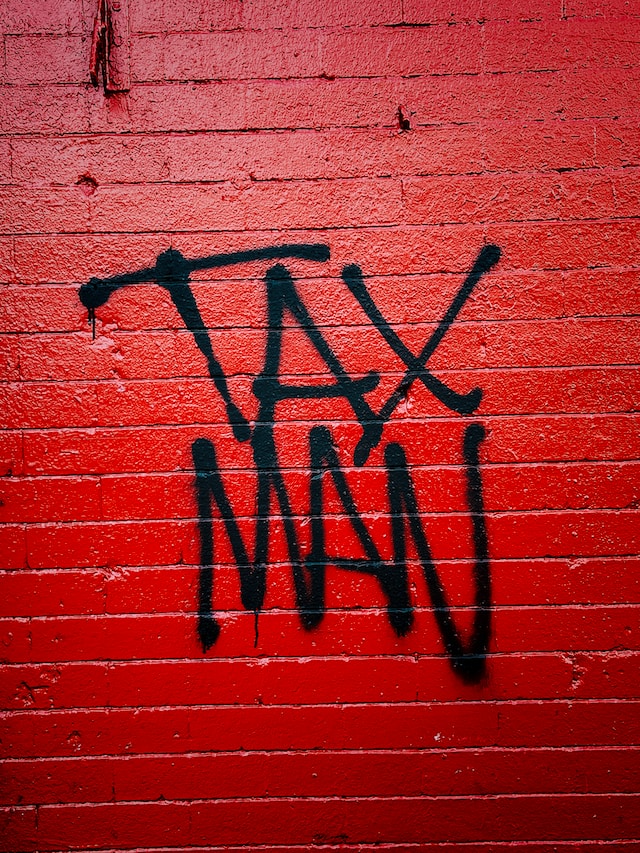Belize provides individuals and businesses alike with numerous tax benefits. Utilizing a territorial tax system that only applies within its borders, personal income taxes only apply within Belizean borders while many exemptions exist.
Pensions in Belize are exempt, while the Qualified Retired Person program provides a path toward citizenship with tax-free status. Property and real estate taxes in Belize are also relatively low.
Income Tax
Belize stands out among many countries as one of the few that provides expats with an affordable income tax rate, as the country employs a territorial tax principle whereby only income earned within Belize can be taxed, making investing easier without worry of heavy taxation burdens. This makes Belize ideal for foreign investors looking for properties to rent out without worry over large tax burdens or significant taxation requirements.
However, that does not imply that foreign investors should evade tax obligations completely; compliance with local laws and reporting income are best. Individuals who fail to file their taxes face penalties and possibly imprisonment as well as being subjected to deportation proceedings for noncompliance.
Income tax in Belize is calculated based on both personal income and allowances set out in the Income and Business Tax Act and administered by the Income Tax Department. Individuals self-employed as well as companies engaging in commercial activity pay a flat rate of 25% of their income while an additional sales tax of 12.5% applies on goods and services sold from taxable businesses directly to consumers.
The government also collects several other taxes, such as environmental, hotel, and land taxes. Environmental taxes are levied on imported products’ CIF value while food items and medicines are exempt. A hotel tax is charged on all room rates at hotels while land taxes vary depending on which municipality the property lies within.
Belize is a relatively small nation, making it easier for authorities to monitor compliance with tax regulations. Foreigners who fail to file their returns could face penalties of up to 10,000 Belize dollars or two years imprisonment; those serving on boards or receiving dividends from companies or receiving contributions must also file returns; anyone renting or investing income through property in Belize must also do so.
Belize Property Tax
Although property taxes in Belize vary depending on its location and market value, they remain relatively affordable compared to other countries. Homeowners in Belize typically pay under $3 per square meter each year in property tax payments; rates depend on factors like property size.
Belize does not levy property inheritance tax or capital gains tax, making the country an appealing option for real estate investment. Furthermore, this lack of taxes makes relocating easier for US citizens and green card holders by eliminating complex trust arrangements required in other countries.
Belize operates under a territorial tax system, meaning residents only pay personal income tax on income earned within the country and meet residency requirements of at least 183 days each year to avoid having to pay Belizean taxes on foreign-sourced retirement benefits and foreign income earned abroad.
However, it’s important to keep in mind that Belize shares its tax information with the US and that US residents and citizens must file returns with the IRS regardless of where they reside or work around the globe. Penalties for failing to file or filing incorrect or incomplete returns with them can be severe; failing to file or doing so incorrectly isn’t worth taking the chance of getting caught by them! For US citizens living abroad in Belize who need assistance filing their returns quickly without incurring penalties through this program called IRS Streamlined Procedure may offer solutions.
People are drawn to Belize because of its convenient purchasing process. There are many professional real estate agents who can assist in this regard; nonetheless, it is still recommended that any major financial decisions be discussed with a lawyer and accountant beforehand.
Belize Real Estate Tax
Belize may be best known as a tourist destination, but it’s increasingly attracting high-yield return real estate investors due to its tax benefits. While governments around the world increasingly snoop on citizens and seize assets from them, Belize remains one of the few genuine tax havens capable of protecting both wealth and privacy simultaneously.
Belize property taxes are assessed based on the value of land. While rates may differ between cities, typically between 1%-1.5% is applied against undeveloped plots as well as those owned by homes or businesses that occupy them.
Property tax in Belize is levied by local governments on various categories, such as manufacturing, utilities, agricultural land and commercial development. Rural properties tend to attract lower rates than their urban counterparts – buyers looking for real estate investments should research real estate taxes before making a definitive decision.
Income tax in Belize is calculated based on profit, with an imposed rate of 25% for both residents and non-residents alike. Deductible expenses or losses from other sources of income may lower this tax amount, and capital gains are exempt from Belizean taxes altogether.
Companies are required to file an income tax return and are taxed on profits that exceed Belize’s $20,000. Any profits over and above their economic activity tax liability may be exempted.
Even though Belize’s low tax rate might make it an attractive retirement destination, it’s essential that retirees understand its tax system before investing there. US citizens and residents must report all worldwide income to the IRS; if their earnings from Belize surpass a threshold they may also need to file a Belize tax return.
Individuals seeking to avoid paying income taxes in Belize should explore options like the Qualified Retired Persons Program or international business corporations as effective ways of shielding income from taxes and are relatively straightforward to establish here.
Resident Status
Belize levies two taxes beyond income: environmental and land. The environmental tax is levied at 2% on CIF values of imported goods while land tax levy at 1% applies to any value of undeveloped rural land owed to the Department of Lands; both rates aim to encourage development; however property taxes outside major cities tend to remain very affordable.
Belize follows a territorial system for income taxes, where individuals only obligated to pay taxes on income earned within its borders must do so. Furthermore, no capital gains or inheritance taxes exist within its borders.
Belize offers low taxation for those looking to relocate. However, in order to become a permanent resident, certain requirements must be fulfilled in order to become eligible as a permanent resident in Belize. You must legally reside for at least a year and pledge funds sufficient for covering living expenses while living there as well as submit passport photos that bear your signature on them back.
Americans seeking residency in Belize may wish to consider applying for the Qualified Retired Person’s Program (QRP), designed specifically for retirees able to demonstrate an adequate monthly income. As well as offering visa and residence permit eligibility, QRP also allows members to import personal items duty free.
Although Belize does not levy income tax on foreign-earned income, US residents are required to file an income tax return no matter where they reside or work. Therefore, if you’re an American citizen or resident, professional advice should always be sought when setting up and managing an international business structure.
Belize offers an attractive global lifestyle destination to investors, entrepreneurs and retirees alike. However, becoming a resident in this country can be complex; therefore it is advised that individuals seek assistance from a firm specializing in international taxation and wealth planning for guidance during this process.




